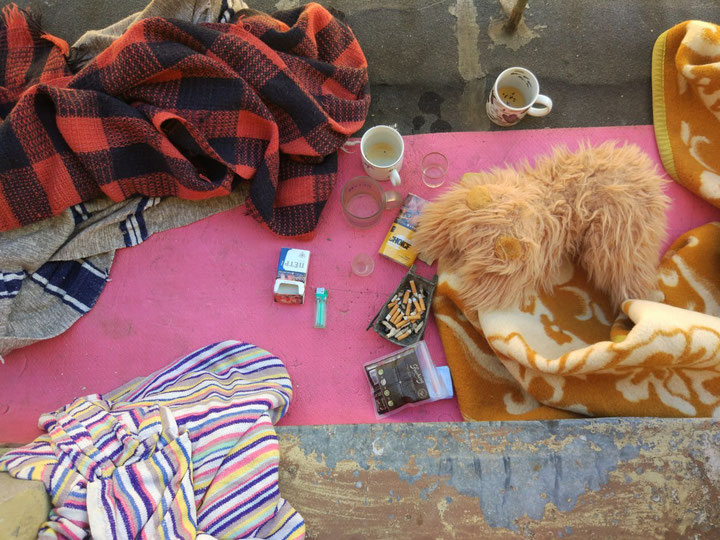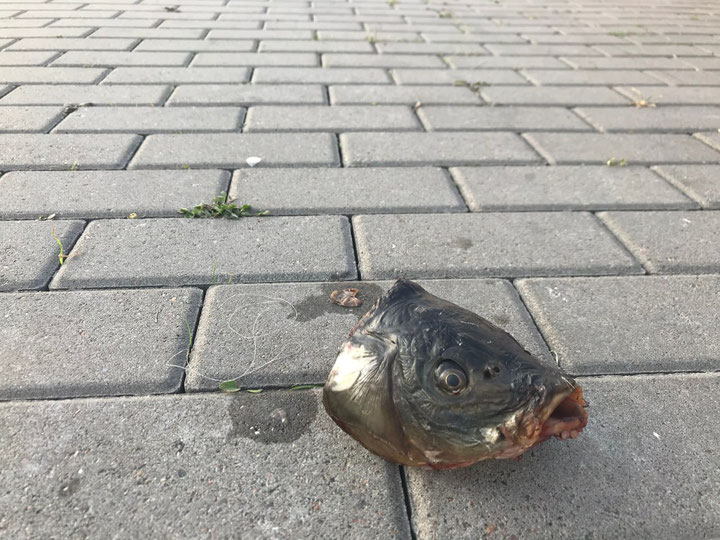Issue 3/2023 - Queer Postsocialist
Queer Postsocialist Diasporas
Aesthetic Practices in Times of War and Solidarity
After Putin’s second invasion of sovereign Ukraine started a full-scale war, the world has shifted and put out of joint. Again. The catastrophic events of the war have brought the population of Ukraine under immediate and constant deadly threat from Russian missiles and troops, and led to humanitarian crises across the country as a result of the destruction of infrastructures, raptures of economic and communal ties, uprootedness, displacement, and forced migration. The rise of ultra-right politics and groups has been marking the European and elsewhere political landscapes while in other countries, such as Russia and Turkey, the totalitarian repressive machinery has been activated in full force by nationalistic, militaristic, homophobic, and misogynist rhetoric. The global food crisis, although declared to be overcome and resolved, the renewed military clashes in border areas in the post-Soviet spaces, military conflicts in Palestine, Syria, Sudan, and other parts of the world along with growing militarization worldwide have intensified the ecological crises on the planet and brought our collective future under question.
In such realities, it may seem that the concept of postsocialisms as well as the futurity of the queerness of postsocialisms with its solidarities and affinities, building alternative social worlds, and creating archives of queer imaginaries, are placed under the crash test, and in some instances, encounter the direct threat of eradication. Irina Zherebkina, a founder of the Kharkiv Center for Gender Studies, wrote from the bombed Kharkiv in March of 2022: “Putin has hijacked the idea of solidarity and support for the peoples of the countries of the former USSR and manipulates it today in order to amass political mobilization in support of his war. We need to take it from him and make it a weapon of anti-militarism again.”1 She insists on keeping a dialog with the transnational feminists and in close relation with the members of the diverse post-Soviet/postsocialist community, she has been building as an editor of the journal Gender Studies since 1998, and through the journal's pages.
In her May 2022 article, Tatsiana Shchurko, a queer feminist activist and scholar from Belarus, sharply points out that “while Russia aims to (re)establish itself vis-à-vis the west and extend its physical, economic, and symbolic borders, western officials also search for such solutions that will maintain a façade of democracy and freedom that preserves their imperial geopolitics and economic interests in Latin America, Africa, Middle East, and Asia.”2 In that, she writes, the war against Ukraine raises important questions of transnational solidarity against imperial warfare – not in the localized context but globally. Inspired by Black feminist internationalism and its legacies, she believes in internationationalist anti-capitalist, anti-racist, and anti-imperialist projects of support networks and infrastructures, and insists on their mobilization for building transnational connections of mutual aid and relationality that resist imperial, authoritarian, and neoliberal violence across and beyond national borders.
Remaining in solidarity with Irina’s and Tatsiana’s calls and insisting on thinking about the queerness of postsocialisms in the times of ongoing wars and transnational solidarity actions, I open up the pages for this issue and invite artists, filmmakers, writers, and film critics to reflect on the current condition through the aesthetic practices of queer postsocialist diasporas and their works.3 I follow Neda Atanasoski and Kalindi Vora’s proposition of postsocialism as a global condition and a method that assists to pay attention to collective practices, collaborative actions, and political imaginaries of social actors who don’t aspire to Western liberal democracies’ ethics and neoliberal politics, and who act at different levels and scales – locally, nationally, and transnationally – in order to reactivate certain political agendas of bringing social changes.4 I follow Gayatri Gopinath’s concept of aesthetic practices of queer diasporas that negotiate diasporic movements in multiple locations, bridge diverse geographies, temporalities, racial formations, colonial and postcolonial histories of displacement, as well as function as archival practices of alternative queer histories.5 I stay in affinity with art practitioners who insist on the realm of the aesthetic that can provide us with a site where we could imagine and build our utopic queer worlds, where conversations and dialogs could still take place, where future social relations, entanglements, and affiliation could be traced and mapped, and where mentalities could be changed no matter how slowly it may go about this.
What could be these aesthetic practices of the queer postsocialist diaspora that imagine the alternative time, space, and relationality, and which forms do they produce? Could they still hold a utopic political promise for living and doing alternative social worlds that challenge capitalist reality and resist its temporality in times of wars and global unrest? Do they hold the potential to rebuild, fuel, and nourish trust, respect, affection, care, queer intimacy, and desire between transnational queer subjects affected by the wars? What queer archives do these aesthetic practices of queer postsocialist diaspora create, and what are the alternative models of queer visuality and storytelling they could spark?
These are some questions that I proposed to the contributors of this issue. Their responses you can find in the following pages. In times of the wars, these pages become our space of postsocialist queer relationality and internationationalist solidarity, the practice of cross-filiations and a form of affective labor: to stay in contact and remain in relation with one another despite of everything.
1 Irina Zherebkina, Dispatch from Kharkiv National University, Boston Review, 14.03.2022, https://bostonreview.net/articles/dispatch-from-kharkiv-national-university/
2 Tatsiana Shchurko, (2022) “More and More of Us Need to Become Internationalist”: The War in Ukraine, Entangled Imperialisms, and Transnational Feminist Solidarity, LeftEast, 22.05.2022, https://lefteast.org/author/tatsiana-shchurko/
3 The artists’ contributions for this special issue was supported by the art-based research project “The Magic Closet and the Dream Machine: Post-Soviet Queerness, Archiving, and the Art of Resistance” (AR 567) funded by the Austrian Science Fund (FWF).
4 Atanasoski, N. & Vora, K. (2017) Postsocialist politics and the ends of revolution, Social Identities, 24:2, 139-154, DOI: 10.1080/13504630.2017.1321712, p. 151.
5 Gayatri Gopinath, Unruly visions: The aesthetic practices of queer diaspora, Duke University Press 2018, p. 6.



